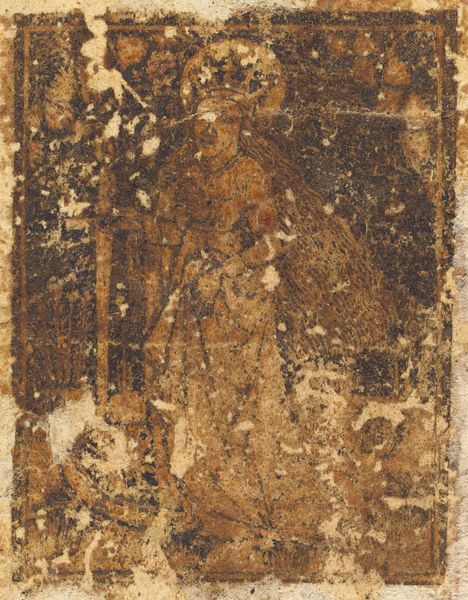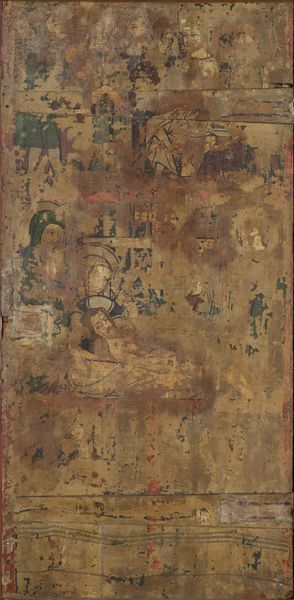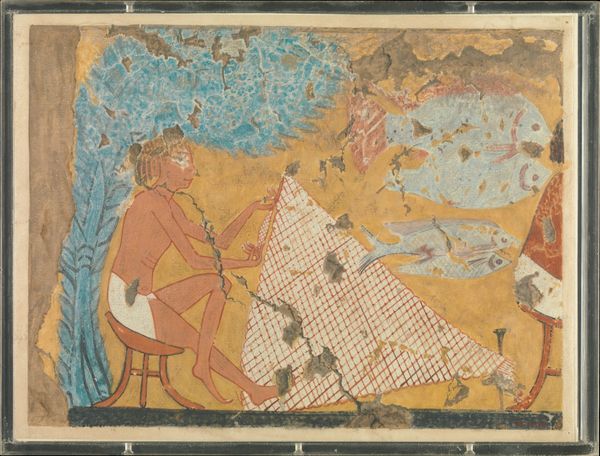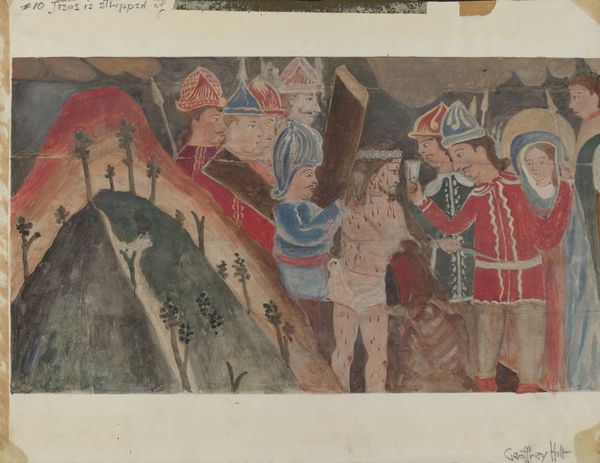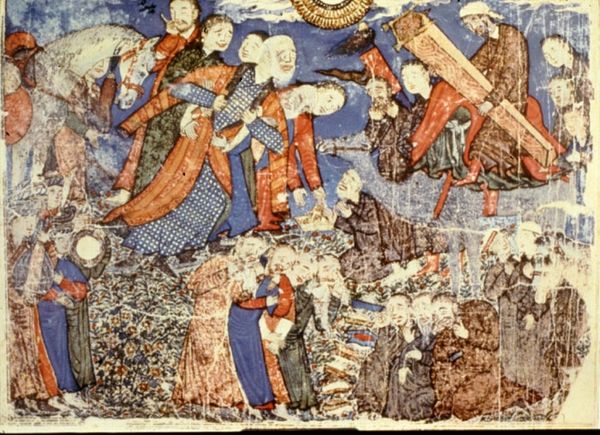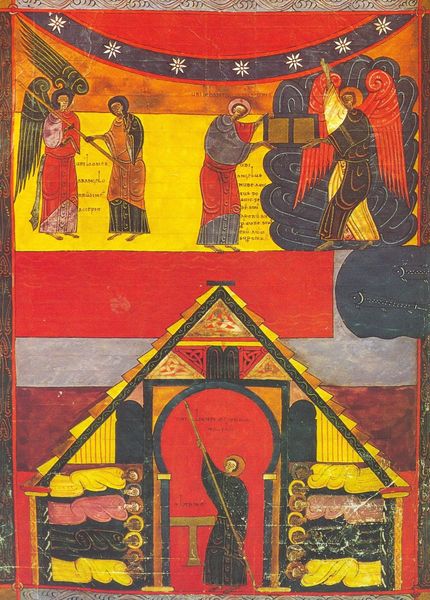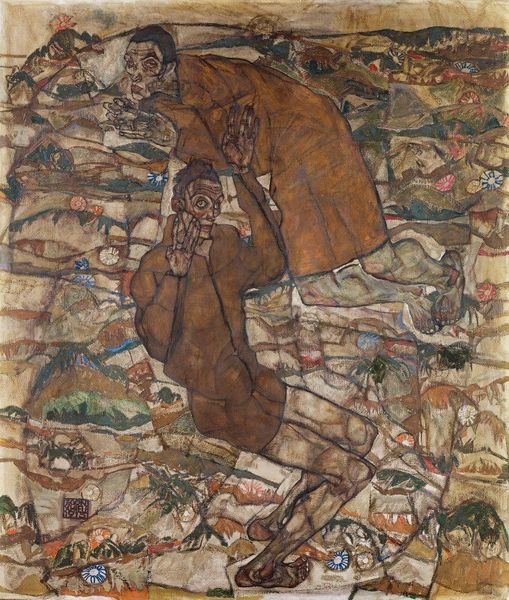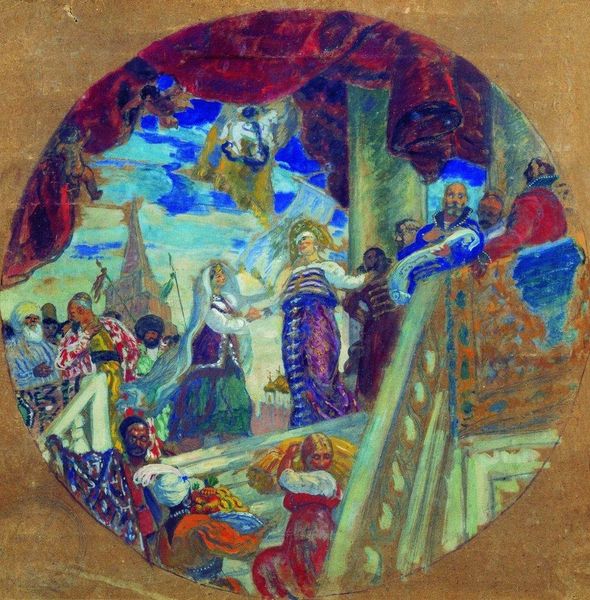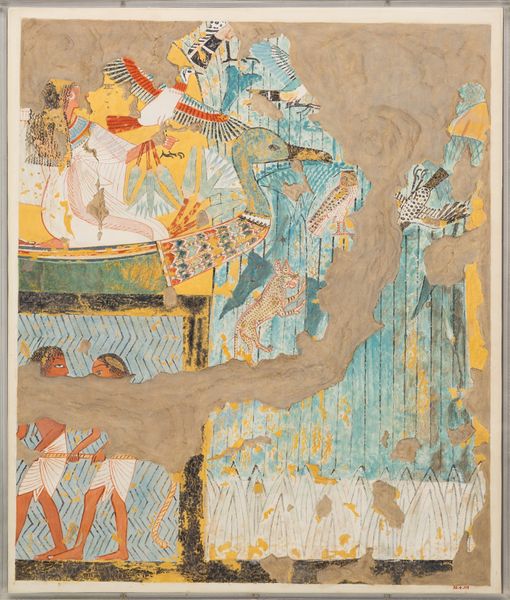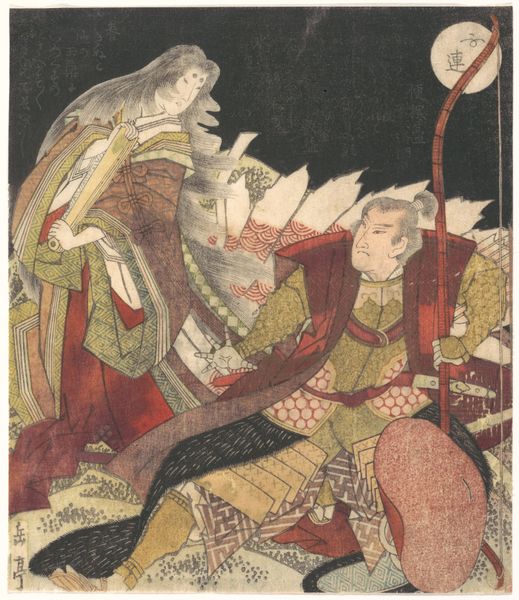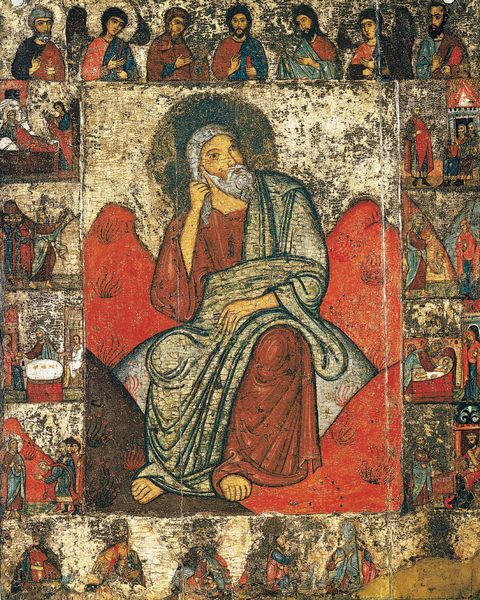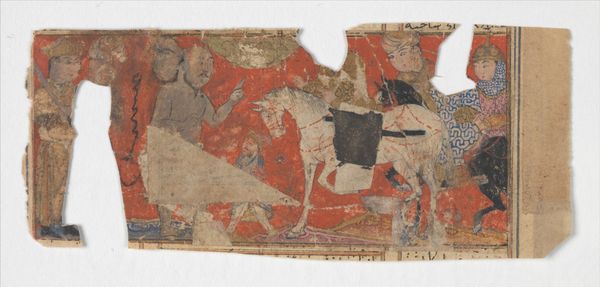
tempera, painting, wood
#
portrait
#
byzantine-art
#
woman
#
medieval
#
tempera
#
painting
#
figuration
#
oil painting
#
child
#
13_16th-century
#
wood
#
14_17th-century
#
history-painting
Dimensions: 17.8 x 21.2 cm
Copyright: Public Domain
Editor: Looking at "The Virgin and Child", an anonymous tempera on wood painting from, most likely, the 14th or 15th century in the Städel Museum. Despite the damages, the figures exude this...iconic presence, rooted in tradition. What's your read on how its history shapes its meaning today? Curator: Its fragmented state speaks volumes, doesn’t it? Consider its original function. These panels often served as devotional objects, deeply embedded in ritual and faith. The damages themselves are part of its history—they testify to handling, to time, to shifts in value and reverence. Editor: So, the cracks aren’t just imperfections; they're historical markers? How did this style gain such authority? Curator: Precisely. Think about the role of the Byzantine artistic tradition. It held tremendous cultural capital. The rigid poses, the symbolic colors, the gold leaf – these weren't just aesthetic choices. They were visual codes that communicated power, divinity, and established religious authority. What is also really interesting to reflect on, how did secular patrons respond to that imagery? Editor: I hadn't thought about secular patrons - how did their influence effect changes in representation of such images? Curator: Excellent question! By late medieval period secular donors often appeared in devotional paintings. By representing individuals they began altering perception of status, individuality, and shifted social perceptions as religious dogma had long shaped that dialogue. Editor: That’s fascinating. It highlights how the museum space recontextualizes even seemingly ‘religious’ art. Curator: Absolutely, the museum frames it and, well, frames our interpretation, doesn't it? I think a question to take away is how and what is lost in that removal and what new meanings do we invent.
Comments
No comments
Be the first to comment and join the conversation on the ultimate creative platform.
